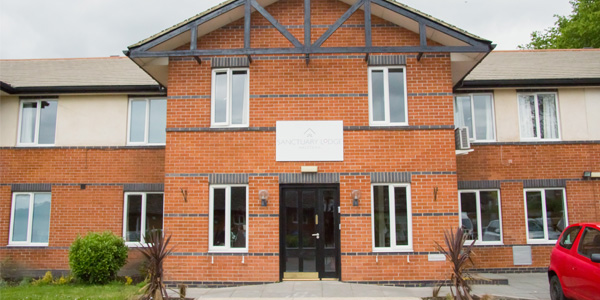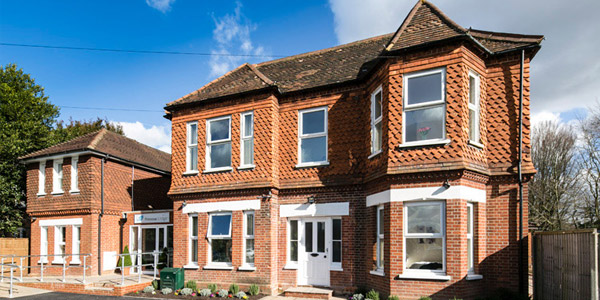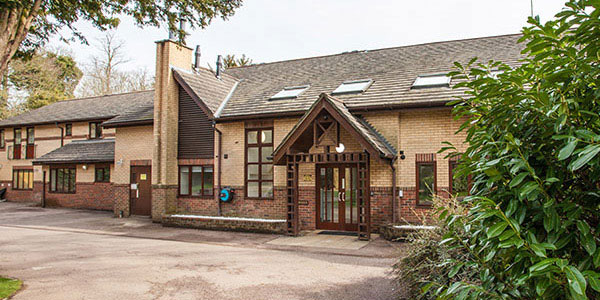Alcohol & Drug Rehab in Hammersmith & Fulham
Addiction Helper in Hammersmith & Fulham offers a variety of treatment options for the treatment and recovery from alcoholism, drug addiction, alcohol abuse and drug dependence in Hammersmith, inner-London. Hammersmith is a wealthy district in West London, England which despite its wealth makes little funding available for the medical detox and/or behavioural rehabilitation of drugs including alcohol, cocaine, cannabis, crack cocaine, heroin and/or prescription drugs. Hammersmith is a part of the London Borough of Hammersmith and Fulham, and part of Greater London.
If you are living in a district, neighbourhood or area of Hammersmith, London and are not sure if there is a provision of local drug and alcohol services which manages drug intoxication and withdrawal symptoms including medical alcohol and medical drug detox then call us. Hammersmith postcodes are W6 and W14. Hammersmith was traditionally a part of Middlesex and known as Hammersmith, Middlesex before it was made part of Greater London and became part of the main area of the Capital City of England, London.

Liberty House Clinic is a fully furbished detox and rehabilitation facility…
- Private
- Holistic Treatment
- Award Winning
- Residential
Featured Rehabs
Sanctuary Lodge is a state of the art detox and rehabilitation facility, se…
At Primrose Lodge we genuinely care that our patients make a full recovery …
Banbury Lodge is a private UKAT rehab facility based in Banbury, Oxfordshir…
-
- 12 Step
- Group Setting
- Free
- Outpatient
-
- 12 Step
- Group Setting
- Free
- Outpatient
-
- 12 Step
- Group Setting
- Free
- Outpatient
-
- 12 Step
- Group Setting
- Free
- Outpatient
- Load More
Drug & Alcohol Rehab Services in London
- A
- B
- C
- D
- E
- F
- G
- H
- I
- J
- K
- L
- M
- N
- O
- P
- Q
- R
- S
- T
- U
- V
- W
- X
- Y
- Z
What Is Rehab?
Residential rehabilitation – more commonly abbreviated to “rehab” – describes the process by which an addict is treated at a dedicated facility, and is also the name given to such a facility itself (hence the phrase “going to rehab”). In rehab, clients typically undergo two main phases of treatment: firstly, detoxification (“detox”) and withdrawal, with assistance from a medical team (which may include the provision of certain medicines to alleviate the worst effects of withdrawal symptoms); and secondly, once detox has cleansed the client’s system of substances of abuse, a period of therapy designed to reveal and address the root cause/s of their addiction.

This treatment – combined (in a unique personalised treatment plan for each client) with other elements including dietary and fitness regimes into one holistic approach – takes place in a secure, tranquil, (usually) aesthetically attractive and (crucially) confidential setting, perfectly conducive to introspection and contemplation on the part of the client who is thus able to focus wholly on their recovery.
There is a broad consensus that rehab is the most effective approach to treating addiction, in terms of its ability to provide a platform upon which an addict can build a permanent recovery: the combined focus on both short-term (physical dependency) and long-term (psychological addiction) challenges, under one roof and in one cohesive treatment programme, generally has a more positive outcome than other treatment models, and as a result in mainstream culture “rehab” has now effectively become synonymous with addiction treatment.
How Can I Get Someone into Rehab?
If you or a loved one are struggling with addiction, it is not mere hyperbole to state that every day counts when it comes to reaching out to help: the longer an addiction goes on, the greater the chance that it will end in tragedy as a result of a fatal overdose or an accident. However, treating someone who is not ready to be treated – who does not truly want to stop abusing alcohol and/or drugs – is a futile endeavour almost guaranteed to end in failure, so it is absolutely vital to develop the right mindset as quickly as possible.
This is one point at which we can step in: we can help arrange interventions for addicts who have not yet proven themselves able to admit to their condition, and for those who have and are reaching out to help we can assist in making the necessary preparations before heading to rehab.
The NHS can provide high-addiction treatment services – yet with demand already so high and growing across the country, especially in densely populated areas like Hammersmith & Fulham – waiting lists can be extremely long with no guarantee of a place. As noted, time is of the essence – so if you’re in Hammersmith & Fulham and are ready to reach out for help, call to speak with an addiction specialist about some of the private options which may be available to you.
Advantages of Private Rehab
As noted above, rehab provides a secure, pleasant, tranquil and confidential setting in which you can focus wholly – and wholeheartedly – upon your recovery, assisted by skilled, experienced and friendly medical professionals, and removed from your daily environment in which you have succumbed to addiction (as well as, of course, from the substance/s to which you have become addicted).
Upon arrival you will be assessed so that the medical team can understand the nature and severity of your addiction, before beginning the detox phase during which you will be supervised for your personal safety (and you may be provided with certain medications to ameliorate the worst effects of any withdrawal symptoms that may manifest).
During the subsequent therapy phase you may engage in a variety of therapy models (in both group and one-to-one settings) to help you understand what led you into addiction in the first place, and to provide you with psychological defence mechanisms against temptation for when you re-enter the outside world. Your personalised treatment plan will also see you provided with bespoke fitness and dietary plans (on the basis of “healthy body, healthy mind”); meanwhile, depending on the specific rehab you are attending, you may also utilise a broad array of other facilities during your stay.
Your recovery will not be complete the moment you step out the door having completed a treatment program in rehab; on the contrary, recovery is a lifelong process with many pitfalls lying in wait. As a result, good rehab providers offer free aftercare (usually for up to a year after leaving rehab) to help you navigate around those pitfalls and reassure you that you still have access to high-quality care during this next crucial phase of your recovery.
Rehab Cost in Hammersmith & Fulham?
The cost of private rehab can vary significantly by treatment programme, and depending on which of a variety of optional extras are selected. As a rough guide, standard costs range from between £5,500 and £11,000 per month, though the cheapest rehab treatment can start from as little as £834 per week. For more details, call us to speak with one of our addiction advisers.
Hammersmith & Fulham NHS Addiction Treatment
If you feel that private rehab is currently not an option for you for reasons of cost, or if you do not feel that you are able to spend the required time away from family and/or work obligations, do not despair: various NHS and charity resources can be found in Hammersmith & Fulham and across Greater London which can help you combat your addiction. Consult your GP about which of these resources may be available to you and would be most appropriate for your specific situation.
Advantages of NHS Treatment
Although there are certain problems associated with seeking treatment from the NHS, as have been mentioned previously, it’s important to recognise that there are advantages to taking the NHS route. The most obvious of these is of course cost: NHS services are free at the point of use.
The NHS also has a geographical advantage in that it operates across the country while some rehabs are a long way away from Hammersmith & Fulham (though this may in fact be an advantage for those wishing to be as far as possible from temptation…). NHS services are typically of a high standard – though quality does vary from one NHS trust to the next, as do waiting times as noted above.
Addiction Support Groups
A number of organisations exist across the country to provide assistance to recovering addicts, and some of these operate a support group model. Support groups are groups of individuals who are themselves recovering addicts – some only recently free from addiction, while others may have been clean for many years – and who come together at regular meetings to give and take mutual support: sharing their stories of addiction, giving advice on how to resist relapse, showing solidarity and sympathy when group members are struggling, and providing the simple companionship which can mean so much in times of difficulty and loneliness.
Support group attendees can come from all walks of life, brought together by their shared experience of addiction and recovery; typically, attendance at support groups is free and the only qualification for participation is a commitment to leading a life free of substance abuse.
The most famous support group organisation, and the one on which most others are modelled, is Alcoholics Anonymous (AA) which was founded in 1935 and runs on a 12-step programme of personal and spiritual development, with one of the steps being a recognition that a higher power – such as God – can assist with an alcoholic’s recovery.
Narcotics Anonymous (NA), founded in 1953 and based directly upon the AA model, is the second-largest support group organisation worldwide and caters to recovering drug addicts specifically. In a similar vein, but supporting those recovering from addictions to specific substances, are Cocaine Anonymous (CA), Heroin Anonymous (HA), Marijuana Anonymous (MA) and Crystal Meth Anonymous (CMA), all of which operate 12-step programmes. There are also support groups such as Al-Anon and Nar-Anon assisting the families and friends of addicts which typically hold meetings alongside those for the addicts themselves.
Support groups typically meet weekly, though each local chapter is managed independently and meeting times and venues are subject to change. To find information on meetings in or near Harrow, see the relevant websites:
Alcoholics Anonymous; Narcotics Anonymous; Cocaine Anonymous; Heroin Anonymous; Marijuana Anonymous; Crystal Meth Anonymous.
Types of Counselling

Some people who have completed a treatment programme in rehab want the security of ongoing professional assistance during the next phase of their recovery – even potentially for several years afterwards. On the other hand, some addicts who have not yet been through rehab, but who intend to do so and who wish meanwhile to manage their addictions, desire a similar level of professional health. For these two groups – and indeed for any recovering addicts with especially busy schedules who want the ability to access support as and when they require it – one especially useful model is individual counselling.
Private addiction counsellors work rather like regular psychotherapists, in that they can be seen by private appointment (perhaps on an ongoing – typically weekly – basis, or maybe less regularly) charging a fee per such appointment. Private addiction counsellors can be found right across the UK – with a great many active in Greater London – offering a broad variety of therapy models and approaches to treatment. Usually such counsellors will be available only during set working hours but some may make themselves available in emergencies.
Reaching Hammersmith & Fulham in London
The borough of Hammersmith & Fulham is found in West and South West London. Its neighbouring areas are Brent, Ealing, Kensington and Chelsea, Wandsworth, Richmond upon Thames, and Hounslow, and it has 16 wards.
The Hammersmith & Fulham wards are: College Park & Old Oak, Wormholt & White City, Shepherds Bush Green, Askew, Ravenscourt Park, Hammersmith Broadway, Addison, Avonmore & Brook Green, Fulham Reach, North End, Palace Riverside, Munster, Fulham Broadway, Town, Parsons Green & Walham, and Sands End. If you have to drive around the borough, keep in mind that there are a number of useful large roads to use for quicker access – the Westway, the A4, the A3220, and the Great West Road. At the same time, if you consider using public transportation, the local stations are serviced by both the London Overground and the London Underground passing through stations across the wards including Putney Bridge tube station, West Kensington tube station, Hammersmith (Piccadilly and District lines; Hammersmith & City and Circle lines), and East Acton tube station.
There are multiple opportunities for your relaxing rehab-focused outings. They may be part of the holistic therapies some rehabs in the area provide. Found in the borough are Fulham Palace, Ravenscourt Park, and the Wormwood Scrubs national reserve.
How to Get to Liberty House Clinic from Hammersmith/Fulham
Liberty House Clinic is a fully furbished 18-bed drug and alcohol detox and rehabilitation facility in a peaceful, picturesque suburban setting in the heart of Luton. Its large, spacious grounds are the ideal place in which to address the key questions at the heart of recovery from addiction, and to embrace its fully comprehensive rehabilitation programme focused on mental, physical and spiritual well-being.
To get to Luton from Hammersmith by road head west on the A4 and continue on the M4 to junction 4B; take the M25 north and at junction 21 exit onto the M1. Stay on that motorway until junction 10; then take the A1081 towards London Road; follow signage to the town centre.
For those preferring to travel by train, Luton is served by Thameslink; from Hammersmith head to Kings Cross St Pancras on the underground and then ascend to London St Pancras to take a train direct to Luton.
Liberty House Clinic
220 Old Bedford Road
Luton
Bedfordshire
LU2 7HP





